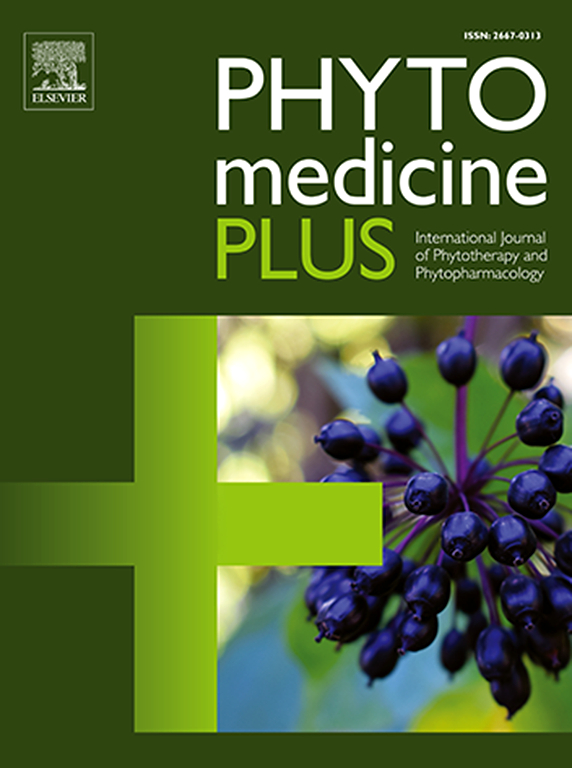Potential of diterpenoid andrographolide in COVID-19 therapy: an insight on its antiviral-, immunomodulatory-, anti-inflammatory-, antioxidant- and antithrombotic- properties
Q3 Pharmacology, Toxicology and Pharmaceutics
引用次数: 0
Abstract
Background
Highly effective clinical drugs need to be developed to treat the infection of SARS-CoV-2 in COVID-19 pandemic. Andrographolide (Andro), a bioactive labdane diterpenoid isolated from Andrographis paniculata Nees, has various pharmacological activities including antiviral and anti-inflammatory activities.
Purpose
The study aimed to search extensively the efficacy of Andro against COVID-19 infection and its associated complications and any adverse events.
Study design & methods
We collected the relevant information presented in this review from scientific literature databases, including Google Scholar, Science-Direct, PubMed and Scifinder using keywords, coronavirus, COVID-19, andrographolide, Andrographis paniculata, pharmacological activity, toxicity and safety. More than 400 units of literature were screened and those relevant to this review were considered.
Results
The results showed that Andro effectively inhibits the replication of multiple strains of SARS-CoV-2 in different cell lines including human lung epithelial Calu-3 cells superior to remdesivir (IC50, 0.034 vs. 0.086 µM) and targets the activity of host ACE2 and viral 3CL-proteases. Moreover, Andro prevents sepsis-related complications in influenza virus-infected or LPS-treated mice, by suppression of inflammation, accumulation of macrophages and neutrophils and oxidative stress in lung tissues through deactivation of NF-κB (via covalent modification of Cys62 of p50) and JAK/STAT and activation of Nrf2/HO-1 pathways. Andro also effectively inhibits PAF-induced platelet aggregation in human blood without inducing toxicity in PBMC up to 50 µM. In clinical trials in mild COVID-19 patients, Andro and its sulphonates in “Xiyanping” injection (XYP) are safe and effective in suppression of pneumonia.
Conclusion
The current findings suggest that Andro/XYP could be a promising therapeutic option for COVID-19.
二萜类穿心术内酯在COVID-19治疗中的潜力:对其抗病毒、免疫调节、抗炎、抗氧化和抗血栓特性的洞察
背景在COVID-19大流行中,需要开发治疗SARS-CoV-2感染的高效临床药物。穿心莲内酯(Andrographolide, Andro)是一种从穿心莲(Andrographis paniculata Nees)中分离得到的生物活性双萜,具有抗病毒、抗炎等多种药理活性。目的广泛探讨安得罗抗COVID-19感染及其相关并发症和不良事件的疗效。研究设计&;方法采用关键词:冠状病毒、COVID-19、穿心莲内酯、穿心莲,药理活性、毒性和安全性,从谷歌Scholar、Science-Direct、PubMed和Scifinder等科学文献数据库中收集文献资料。筛选了400多篇文献,并考虑了与本综述相关的文献。结果Andro对多种SARS-CoV-2病毒株在包括人肺上皮细胞Calu-3细胞在内的不同细胞系中的复制抑制作用优于remdesivir (IC50, 0.034 vs. 0.086µM),并可靶向宿主ACE2和病毒3cl -蛋白酶的活性。此外,Andro通过抑制NF-κB(通过p50的Cys62共价修饰)和JAK/STAT的失活以及Nrf2/HO-1通路的激活,通过抑制炎症、巨噬细胞和中性粒细胞的积累以及肺组织中的氧化应激,预防流感病毒感染或lps治疗小鼠败血症相关并发症。Andro还能有效抑制paf诱导的人血液中血小板聚集,而不会对PBMC产生高达50µM的毒性。在COVID-19轻症患者的临床试验中,“喜炎平”注射液(XYP)中的安德罗及其磺胺类药物对肺炎的抑制是安全有效的。结论目前的研究结果表明,Andro/XYP可能是一种有前景的治疗COVID-19的选择。
本文章由计算机程序翻译,如有差异,请以英文原文为准。
求助全文
约1分钟内获得全文
求助全文
来源期刊

Phytomedicine Plus
Medicine-Complementary and Alternative Medicine
CiteScore
3.70
自引率
0.00%
发文量
178
审稿时长
81 days
期刊介绍:
 求助内容:
求助内容: 应助结果提醒方式:
应助结果提醒方式:


